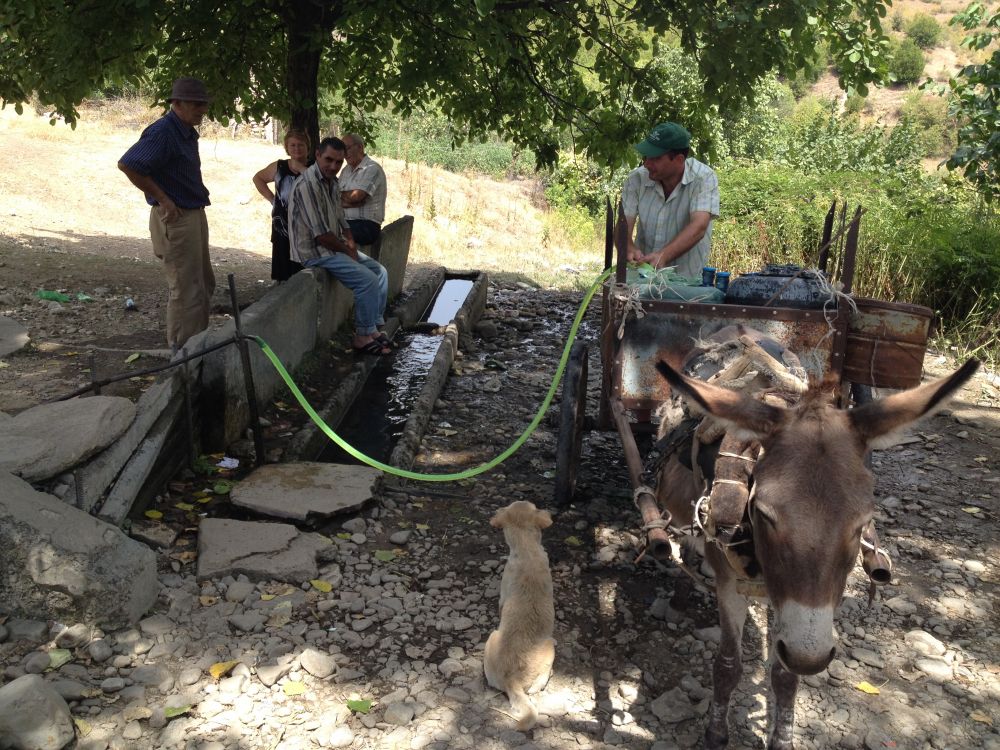Weekly Georgian Etymology: ბირჟა birža 'hangout place', from Russian биржа 'exchange, market' from (low) German Börse, < French bourse 'stock exchange', < Late Latin bursa 'leather purse', < Greek βύρσα 'skin, hide'. Now often a slang term for where local gossip is exchanged.
The word's most basic meaning is still a place of (mercantile) exchange, such as საფონდო ბირჟა sapondo birža 'stock exchange'. It's found in this earlier sense in 19-20th c authors like I. Chavchavadze, G. Robakidze, and K. Gamsaxurdia and in translations of Pushkin and A. Dumas.
It was clearly felt to be very foreign, as we find one example of prescriptive carping by M. Javakhishvili already in 1924: "ერთ დარბაზში ნამდვილი სეტყვა მოდიოდა ასეთის სიტყვებისა: „ჟენოტდელი”, „ჩისტკა”, „სოკრაშჩენიე”, „უბორკა”, „ბირჟა ტრუდა”, და ათასი ამისთანა ნარევი..."
Which translates: "In one hallway fell a real hail of such words: Женотдел 'Women's Department', чистка 'purge', сокрашение 'laying people off', уборка '[political] cleansing', биржа труда 'labor market', and a thousand similar things mixed together..."
Georgian of course already had a number of words for markets, so this reflects the very new system of capitalist ownership introduced in the 19th century to Georgia during the Russian Empire: https://twitter.com/thomas_wier/status/1247075498259292160
The Russian word had already undergone semantic expansion, as it is used in a broader range of contexts than the French/Dutch/German senses of the word as a place specifically for the exchange of shareholder equity in the form of stocks and bonds. The Georgian word reflects this.
Thus in Georgian you can say
შრომის ბირჟა šromis birža job center
საქონლის ბირჟა sakonlis birža commodity exchange
შავი ბირჟა šavi birža (illegal, lit. 'black') currency exchange
The latter is another example of how it was used for the informal (i.e. not state-owned) markets.
შრომის ბირჟა šromis birža job center
საქონლის ბირჟა sakonlis birža commodity exchange
შავი ბირჟა šavi birža (illegal, lit. 'black') currency exchange
The latter is another example of how it was used for the informal (i.e. not state-owned) markets.

 Read on Twitter
Read on Twitter


